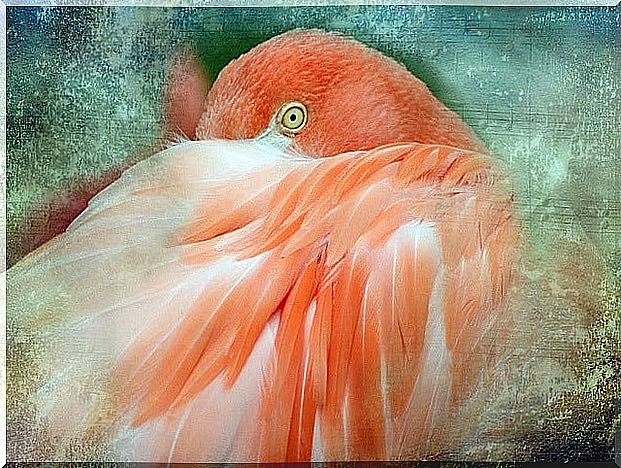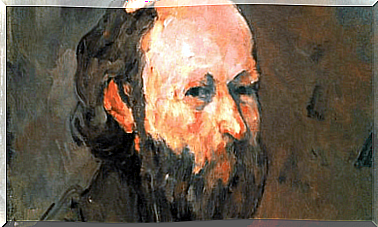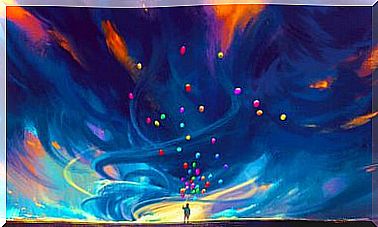Love Is Eternally Unsatisfied

As the Spanish philosopher and essayist José Ortega y Gasset said, love is an eternal dissatisfied unlike desire that dies when it is satisfied. The clear example is that in all ages the human being has been interested in love. We have always made him the protagonist of our lives.
The human being moves through love, everything he does, whether good or bad, is under the influence of this feeling, which traps and transforms us, motivating desires, thoughts and all kinds of actions.
Difference between love and desire
To better understand what love is, it is essential to separate this feeling from desire. This clarification is important since on many occasions we confuse one thing with the other, wishing when we think we are loving.
The main characteristic of desire is its tendency towards possession, everything that is desired is susceptible to wanting to possess, to be part of us.
Once what we want is part of us, it automatically dies when we get it ; as Ortega y Gasset says: it ends when it is satisfied. This is due to the passive nature of desire.
With the pretense of desire, it is expected that what we desire will gravitate around us, and therefore come towards us. Like when we use the strategy of giving with the intention of obtaining.
The main characteristic of love is the one provided by Ortega y Gasset, who says that love is an eternally unsatisfied feeling. The person who loves is capable of leaving himself to gravitate around the subject he loves, it is an act that would no longer be passive, but rather active. For the benefit of going to the loved one and being in him.
Saint Augustine declared the following: Amor meus, pondus meum; illo feror, quocumque feror, or what is the same: “My love is my weight; for him I go wherever I go ”.
These are the characteristics that love would have in a person who loves according to José Ortega y Gasset:
– The direction of movement is centrifugal, it goes from the subject to what he loves, on the other hand the desire is centripetal, since it goes from what is desired to whoever wants it. This movement to which he refers is not physical but rather of the soul.
– We can know that we are loving something or someone, when we realize that our joy comes from that something or someone.
– Love is also sad and mortal, love calculates itself through the pain and suffering of which it is capable.
– It is prolonged in time: one does not love in series of sudden instants, of points that turn on and off like the spark of the magnet, but one is loving what is loved with continuity.
– All love goes through stages of different temperatures and subtly the usual language speaks of loves that get cold, and the lover complains about the warmth or coldness of the beloved.
– Love toils around what is loved. Desire enjoys what is desired, receives from it pleasure, but does not offer; it does not give away, it does not put anything on its own.
– Love acts constantly enveloping the loved in a favorable atmosphere, and is, from near or far, caress, compliment, corroboration, pampering, in short.
– It is not by itself physical union, not even proximity, we are with the loved one in a symbolic way, our soul seems to expand fabulously, bridge distances, and wherever it is, we feel an essential reunion with him.

Love continues to be a feeling that awakens the interest of all people, with the pretense of knowing and understanding it, books, poems, songs are written, beautiful creations are made around it. This will continue to be the case despite the fact that love only understands feeling, experience and experience.
We will continue immersed in the swing of emotions generated through love, being for each the most extraordinary, the most beautiful. Being the most generous act that man can emanate. Each person lives it in a way, takes advantage of it and enjoys it within their peculiarity.
But there is no doubt that the act of loving is the most dignified thing that a person can live, and therefore, by being able to live it and feel it, one must be able to consider the most fortunate person, even without having correspondence from the loved one. , because love despite being hurt and frustrated will continue to grow in each one of us as an eternal dissatisfied.
Consulted bibliography:
Gasset, JO (1959). Studies on love . Western Magazine.









